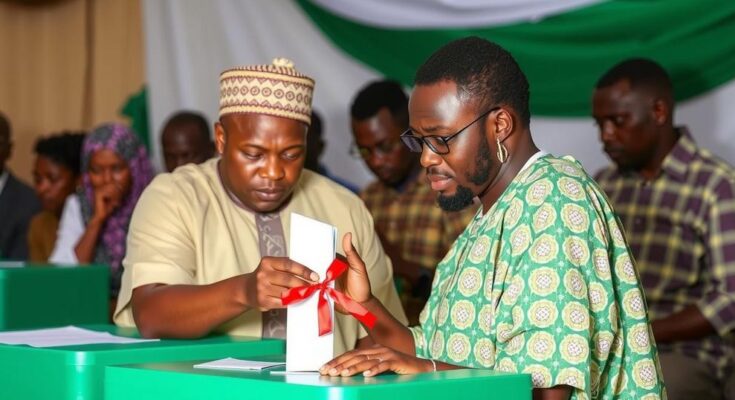Ghana’s recent presidential election, which saw John Dramani Mahama’s victory, contrasts sharply with Nigeria’s troubled electoral history. Ghana’s process was praised for its transparency and strategic management, while Nigeria’s 2023 elections were criticized for inefficiencies and lack of public trust. The article underscores the need for Nigeria to learn from Ghana’s success to enhance its own electoral credibility.
In Ghana’s recent presidential election, held over the weekend, former president John Dramani Mahama emerged as the clear victor following the concession of his opponent, Vice President Mahamudu Bawumia. This electoral process has reinforced Ghana’s status as a model of democracy in Africa, characterized by its transparency and efficiency. Local and international observers praised the integrity of the elections, commending the Electoral Commission’s meticulous planning and execution, which ensured a seamless experience without significant disruption.
Conversely, Nigeria’s 2023 general elections, which were plagued by technological malfunctions and a lack of transparency, highlight the shortcomings within its electoral system despite an exorbitant budget of N313.4 billion ($215 million). Instances of equipment failure during critical moments, logistical complications, and allegations of electoral fraud have contributed to widespread public distrust in the Independent National Electoral Commission (INEC).
Ghana’s approach was markedly different, exemplifying effective resource management and strategic fiscal discipline. This stands in stark contrast to Nigeria, where the election expenditures are scrutinized for potential inefficiencies and corruption. The strong reputation of Ghana’s Electoral Commission, built through years of credible operations, further underscores the importance of public trust, which significantly impacts the electoral atmosphere.
Additionally, the simplified nature of Ghana’s electoral process, with clear logistical frameworks, reduces operational challenges significantly compared to Nigeria’s convoluted system that involves multiple simultaneous votes at various levels. This complexity often hinders the INEC’s ability to conduct effective elections.
The recent election in Ghana illustrates the critical need for Nigeria to reform its electoral processes and restore public confidence. As Nigeria strives to be recognized as a leading nation in Africa, it must prioritize electoral integrity and address systemic inefficiencies that have hindered its democratic credibility. The comparative success of Ghana serves as a poignant reminder of what can be achieved with disciplined planning and transparent governance.
The article discusses the significant differences in electoral processes between Ghana and Nigeria, specifically reflecting on Ghana’s recent presidential election, which was lauded for its efficiency and transparency. In contrast, it highlights the issues faced by Nigeria during its 2023 elections which were marred by irregularities, technical failures, and corruption allegations. The piece explores the importance of public trust, effective planning, and fiscal discipline in fostering credible electoral outcomes.
In conclusion, Ghana’s latest election cycle provides a clear blueprint of effective electoral management and transparency that Nigeria should strive to emulate. Strengthening public trust, improving logistical frameworks, and managing resources efficiently are essential for restoring confidence in the electoral process in Nigeria. Without substantive reforms, Nigeria’s aspiration to be a democratic giant on the continent will remain unfulfilled as it struggles with persistent electoral challenges.
Original Source: businessday.ng




